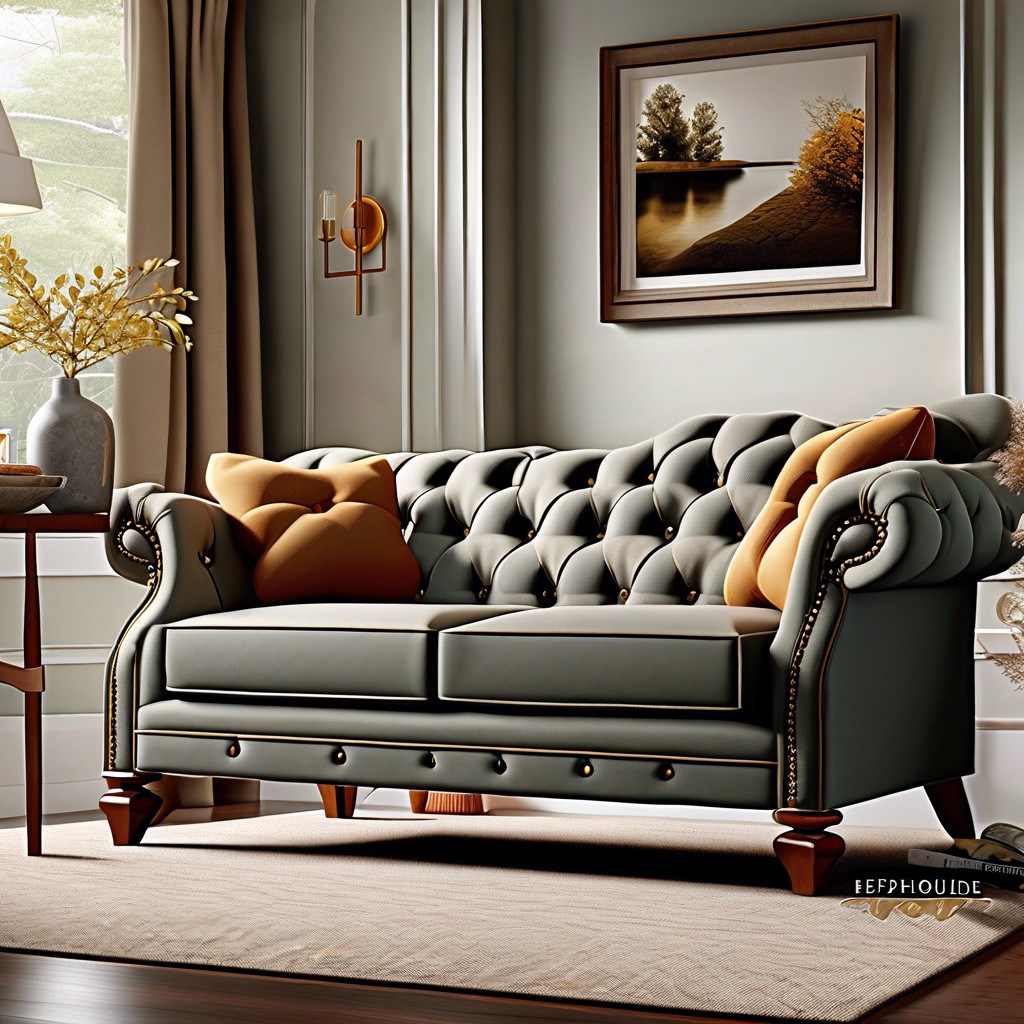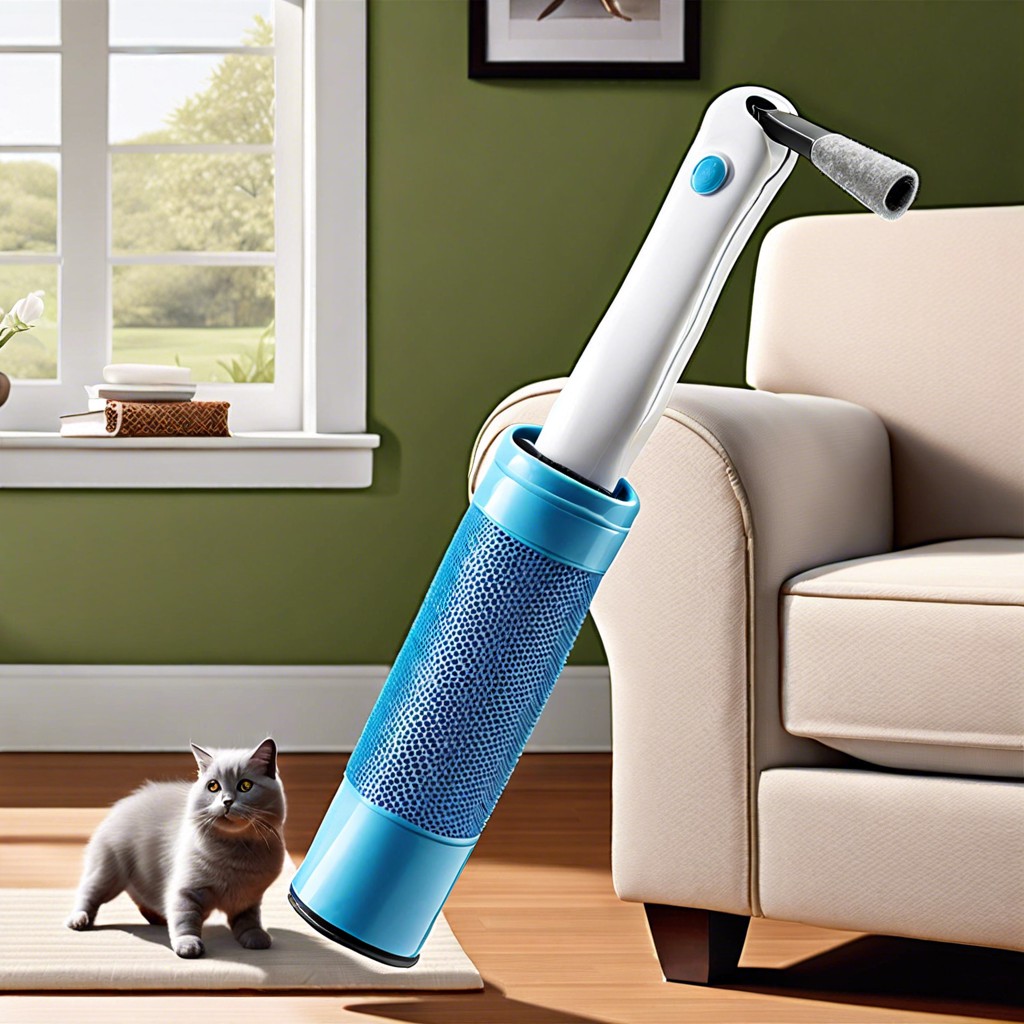Last updated on
Discover effective methods to remove unwanted odors from your leather couch, ensuring a fresh and pleasant living space.
Key takeaways:
- Leather is porous and can absorb odors easily.
- Factors like humidity, usage, and exposure can contribute to odor.
- Preventive measures include proper storage and regular maintenance.
- Regular maintenance involves dusting, vacuuming, conditioning, and blotting spills.
- DIY solutions like baking soda, vinegar, lemon juice, charcoal, and essential oils can help remove odors.
Table of Contents
Understanding Leather and Odors
Leather, a durable and flexible material, is created through the tanning of animal hides. Its porous nature makes it susceptible to absorbing odors from the environment, such as smoke, food, or pet smells. Specific types of leather, like full-grain, retain more of their natural characteristics and may absorb odors more readily. Meanwhile, finishes and conditioning treatments can either seal in unwanted scents or protect against them.
Factors affecting leather’s vulnerability to odors include:
- Humidity: Higher levels can amplify smells and encourage the growth of mildew, which adds to odor issues.
- Usage: Frequent use can lead to the absorption of body oils and sweat.
- Exposure: Prolonged exposure to strong-smelling substances can result in odors becoming embedded in the leather.
Understanding the nature of leather and the reasons it may develop odors is crucial for effective cleaning and deodorizing strategies.
Preventive Measures for Leather Odor
Keeping your leather couch smelling fresh starts with diligent care from day one. Store leather furniture in a well-ventilated area away from direct sunlight to prevent the material from sweating and absorbing excess moisture, which can lead to musty odors.
On a routine basis, dust the surface and gently vacuum crevices to remove potential odor-causing debris. Wipe away spills immediately to ensure substances do not penetrate and linger within the leather.
To maintain the couch’s natural integrity and pleasant scent, condition the leather every 6 to 12 months using a product suitable for the couch’s leather type. Regular maintenance isn’t just about cleanliness, it’s also about preserving the material to prevent odor absorption.
Proper Leather Storage
Storing leather furniture in the right conditions is key to preventing the absorption of unpleasant smells. To maintain the pristine condition of your leather couch, it’s essential to keep the environment ventilated. A steady flow of air helps to dissipate potential odors and prevents the growth of mildew, which can occur in damp conditions.
It’s also important to avoid direct sunlight or heat sources, as these can dry out and crack the leather, making it more susceptible to bad smells. Furthermore, consider using a breathable cover when the couch is not in use for extended periods; this will shield the leather from dust and debris without trapping moisture.
Always leave a gap between the couch and walls or other furniture to ensure adequate air circulation. Remember, a well-maintained leather couch is less likely to develop offensive odors over time.
Regular Leather Maintenance
Maintaining a leather couch involves a routine that keeps it clean and odor-free:
1. Dust Regularly: Just like any other furniture, leather collects dust. Use a soft cloth to wipe down the leather weekly, preventing buildup.
2. Vacuum Creases and Crevices: Small particles and crumbs can hide in the folds of a leather couch. Use a vacuum with a brush attachment to gently remove these particles.
3. Condition the Leather: Over time, leather can dry out and crack, which may trap odors. Apply a quality leather conditioner every 6-12 months to keep it supple.
4. Blot Spills Immediately: When spills happen, absorb them quickly with a clean cloth. Avoid wiping as it can spread the liquid.
5. Avoid Harsh Chemicals: Cleaners with alcohol or bleach can damage leather. Stick to products designed specifically for leather care.
6. Keep Leather Out of Direct Sunlight: Prolonged exposure to sunlight can fade and dry out leather, creating conditions more prone to bad smells.
DIY Solutions for Removing Odors From Leather
Baking soda serves as a natural odor absorber and can be lightly sprinkled over the leather couch. Allow it to sit for a few hours, or even overnight. Vacuum it thoroughly afterward to remove any residue.
White vinegar, with its deodorizing properties, can be used to wipe down leather surfaces. Create a diluted solution using equal parts water and vinegar, apply it to a soft cloth, and gently rub the leather. Make sure to not soak the leather and allow it to air dry completely.
For persistent smells, a paste made from equal parts of lemon juice and cream of tartar can be effective. Apply the paste to the affected area, let it sit for ten minutes, and then wipe it away with a damp cloth.
Activated charcoal is also an effective deodorizer when placed near the leather couch in an open container. Over a few days, it can help to absorb foul odors lingering in the material.
Essential oils can be mixed with a carrier oil or water and sprayed lightly onto the couch. Opt for oils with antimicrobial properties like tea tree or lavender for additional benefits. Always test a small area first to ensure that the leather does not get damaged.




